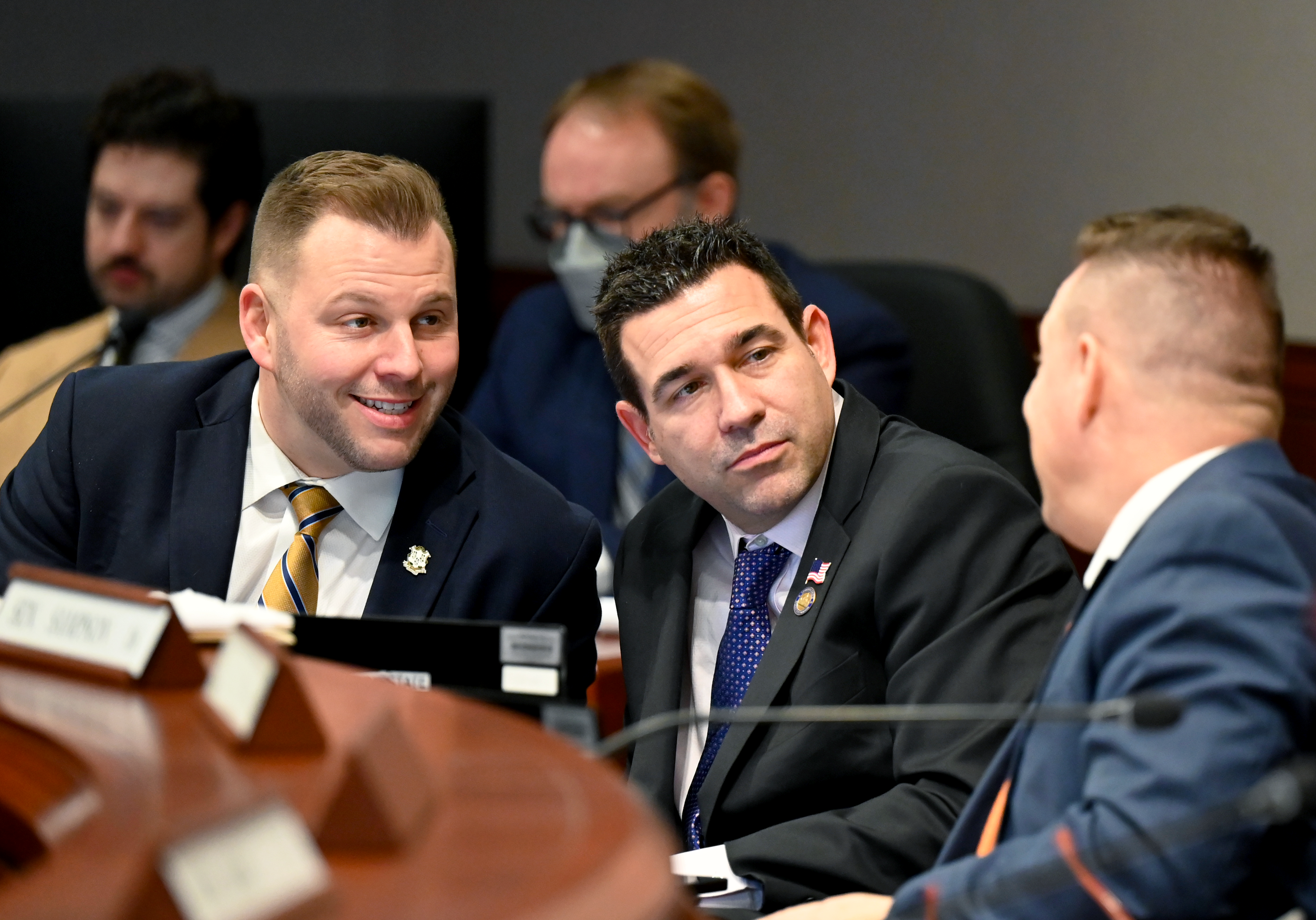
Posted on March 1, 2024



Hartford, Conn.– House Republicans on the Housing Committee were the chief opponents to a series of bad proposals to pass on party lines at a meeting on February 29th.
Ranking Member Tony Scott (R-112) issued the following statement: I have serious concerns with An Act Concerning Evictions for Cause, which would establish a general right for any tenant to remain in a rental unit after a lease term expires. The state shouldn’t hamstring the right of a housing provider to use their property as they see fit. A lease is a contract, agreed to by both the landlord and the tenant, and each party knows there is a set end date. The government shouldn’t be interfering with this basic business function. Another bill that raised procedural questions is An Act Concerning The Collateral Consequences of Criminal Records On Housing Opportunities. This proposal doesn’t remove the ability of a housing provider to do a criminal background check on a prospective tenant; but we’re arbitrarily picking how far back a landlord can look at that background check. I also have concerns about how we would police the fact that they’d only be allowed to decide on those few years and not before.
Statement from State Rep. Joe Polletta (R-68): “I am disappointed that the Housing Committee has yet again decided to stack the odds against housing providers in Connecticut and further restrict their ability to make good-faith efforts to bolster our affordable housing stock in a way that benefits both parties. It is insulting to landlords investing in our state and to residents who call it home that majority party Democrats in Hartford will say that you have no right to know that your tenant or neighbor has a serious criminal record. How can we be comfortable with this in a time where crime is creeping more and more into communities across Connecticut?”
Statement from State Rep. Steve Weir (R-55): “A bill of serious concern for me as a member of the Housing Committee is SB-207, whereby a housing authority would be able to operate outside of the municipal jurisdiction where they are based without needing consent from the community where the housing authority wishes to do business. This is concerning for me for many reasons: A housing authority is formed in a specific community where a need is recognized, and it’s accountable to that community. This legislation would undoubtedly circumvent local control and nullify the elected and/or appointed boards and commissions designed to oversee these types of developments. Additionally, it would allow a housing authority to pursue its own economic interests outside of the community being impacted by this proposal and potentially turn its back on the community that backed its inception.”
Rep. Scott Opposes Government Overreach Bill into Housing Authority Jurisdiction and issued the following statement:
“A new legislative session is here and once again we’re dealing with another proposal to take local control away from municipalities. An Act Concerning Housing Authority Jurisdiction would allow those entities to expand beyond their own city or town border into other municipalities. Each town’s planning and zoning control is what makes them unique, and Hartford shouldn’t allow one municipality the ability to tell another what it should or shouldn’t be doing within its borders. Under this proposal, a housing authority would be able to circumvent local zoningregulations by using the 8-30g affordable housing appeals process to build affordable housing that a town does not want.”
State Representative Joe Zullo (R-99) said: “My colleagues in the majority desire fairness in what is stacking up to be an unfair game on housing. In one bill, the State would stack the deck for non-profit housing authorities and turn them into ‘super-developers’, allowing them to forcibly develop dense housing in small municipalities. In another bill, the State would permit tenants to remain in rental units beyond the expiration of a lease. Interfering with contracts and the rights of our individual municipalities is irresponsible and intrusive. All of these far-reaching proposals stand to further squeeze the middle class and hurt small businesses and housing providers. I strongly oppose these bills because they represent yet another example of ‘big government’ dictating what towns, developers, housing providers, and consumers can and cannot do.”
